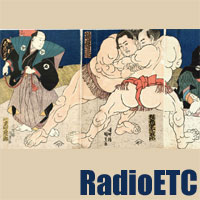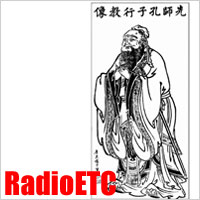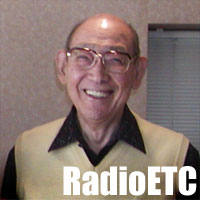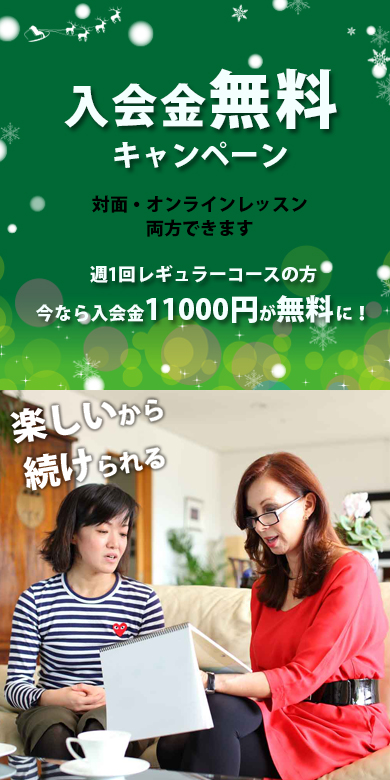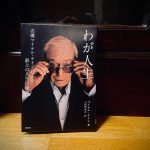Author Archives: HiroAOKI
ベジタリアン・ライフを勧める理由

 090525.mp3
090525.mp3
(7分52秒)
温室効果ガス発生の原因の18%を占める産業があります。それは自動車産業でもなく、航空機産業でもありません。私たちの食生活にとても身近にあるこんな産業でした。
■出演
・ペオ・エクベリ(Peo Ekberg)
環境コンサルタント、OneWorld Network代表、One Planet Cafeアドバイザー
■聞き手
・青樹洋文
◆使用楽曲 (BGM)
“Hot spot” of Electric grocery from DOGMAZIC
You”は最初に、”I”はその次
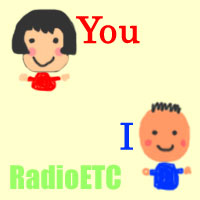
You”は最初に、”I”はその次 (2分07秒)

英語には日本語のような謙譲語にあたる表現はないといわれています。本当にそうでしょうか?
■出演
・カーラ先生(ETCマンツーマン英会話)
■聞き手
・青樹洋文
☆番組の中で紹介した書籍
 『その英語、ネイティブにはこう聞こえますSELECT』
『その英語、ネイティブにはこう聞こえますSELECT』
(David A.Thayne、小池信孝 著、主婦の友社 刊)
(※ 出演者が話した言葉をそのままテキストにして掲載しています。)
Q: I WANT is very strong.
Not very. I mean it’s stronger. You can make it sound very strong, if you want. “I WANT YOU TO” sounds very strong. But of course the moment you put “I” in first, that’s sort of like an order kind of thing. Right. If you, even if you think of other languages, The “I”, it’s quite sounds very coming from YOU.
Q: That’s why, if I say “could you” sounds much softer and nicer.
The “You” come secondly. Not the “I”. So you are giving, you are asking for permission to the person in order to say I am asking you to do something for ME.
This is also very interesting. If you think about the psychology, if you always use “I” “I want” “I do” “I go”, you are always talking about yourself. You are the No.1 maybe. Right. So again if you really look at the words, you understand if I say I first, that’s my wish. That’s my hope, my order. So if you ask for permission, would you say could you…
But too much modesty is also wired.
Q: Wired?
Wired. Strange. I mean, for example, you are talking to your kid, of course sometimes you could say “Could you bring me that piece of cheese, please”, ok, it’s fine. But I want you to go to school tomorrow. You are asking the kids to “please don’t stay too late”. So you have also think about it, if you have too much modesty, “could you please” “Could you please”. Sometimes you say, “I’d love to”. I would love to if you come with me tomorrow. I want you to come with me tomorrow, because it is an important party or conference or whatever. You are asking to your friend or to your boy friend or to you husband. So sometimes you have to tell the person the importance, that is for you.
◆使用楽曲 (BGM)
“A nice world” of Electric grocery from DOGMAZIC
英語で彼に元彼を紹介する時は?

090519.mp3 (4分32秒)

デビッド・セインさんの『その英語ネイティブにはこう聞こえます』からこんな表現をピックアップしました。”お噂はかねがね伺っております。” これを”I heard about you.”と言ってしまうと、これは常にネガティブな意味合いで使うひと言で「ひどいことをしたんだね」「悪い噂を聞いているよ」といったニアンスになってしまうそうです。
■出演 ・カーラ先生(ETCマンツーマン英会話)
■聞き手 ・青樹洋文
☆番組の中で紹介した書籍
 『その英語、ネイティブにはこう聞こえますSELECT』
『その英語、ネイティブにはこう聞こえますSELECT』
(David A.Thayne、小池信孝 著、主婦の友社 刊)
(※ 出演者が話した言葉をそのままテキストにして掲載しています。)
If you want to give that connotation, it’s possible.
Q: connotation?
Connotation means that meaning. OK? If you say I heard all about you. Oh what do you mean? Oh, it’s ok. Relax, don’t worry. Maybe you know it’s not only about bad things, maybe ironical way. Oh, for example, you have a, that is your boy friend, And your boy friend’s friend says “I heard all about you” or “oh my friend likes you, so I know a lot of things about you.” So the idea can change. Yeah.
The appearance, but the voice. The voice sounds. If you say “oh I heard all about you”, that’s very “oh, you know”. “Oh I’ve heard so much from you” So it’s probably nice things. But you can say, “I’ve heard so much from you… ” You know.
Q: You are very good actress.
It is Acting. The language is also acting. OK. It’s not about, I mean that the acting puts your emotion. It’s not only with words you can express how you feel. What you think about the situation. So you got to be a little bit expressing sincerely in order to people understand. I mean you don’t need the words sometimes, if you don’t be honest to use them.
Also the next time you hear these expressions in any kind of situation, maybe you hear them suddenly on the TV on movie on a song or someone is talking to somebody else or you are reading in the paper. Check it out and think about it. Then you will notice probably after follow through all this book or think about yourself, you will really notice much faster. And you will see the difference between one way or another way of the expression.
◆使用楽曲 (BGM) “A nice world” of Electric grocery from DOGMAZIC
新型インフルエンザ感染予防ご協力のお願い
先週末より関西圏で急に新型インフルエンザの感染者が多数出てきましたので
ETC英会話事務局でも首都圏に感染が広がってきた場合の拡大を防ぐため以下
の事項を確認しご協力をお願いいたしたく思います。
・予防のため外出する場合は、人込みを避け必ずマスクをつけるように心がけま
しょう。使うマスクはなるべくウィルスそのものを通さないタイプのもの、鼻ま
で覆えるタイプのものが効果的ですのでお勧めいたします。帰宅後は手洗い・う
がいを行いましょう。マスクを外し捨てる際にも外側に触れぬように、また密閉
して捨てることが重要だそうです。
・咳や熱の出ている方はおそれいりますが治るまでレッスンの受講を控え振り替
えるなどして感染予防にご協力ください。レッスンの24時間以上前の変更は無料
です。
・高熱・咳等インフルエンザの症状のある方はその症状が本当に新型インフルエ
ンザなのかは検査をしなければ分かりません。速やかに保健所等・発熱相談セン
ターに電話で連絡し、発熱外来などで受診しましょう。連絡なしに医療機関へ直接
行き受診することは感染を広めることにもなりかねませんのでおやめ下さい。
厚生労働省電話相談 03-3501-9031
東京都発熱相談センター、
平日夜間・休日・祝日の連絡先 03-5320-4509
(昼間は最寄りの保健所へ)
神奈川県 発熱相談センター保健福祉総務課 045-633-3777 (9a.m.-9p.m.)
埼玉県 発熱相談センター疾病対策課 048-830-3572(24時間受付)
千葉県 発熱相談センター疾病対策課 043-223-2665
健康福祉政策課 043-223-2675
・生徒様で受診の結果により万が一新型インフルエンザでることがわかった場合
は速やかにETC事務局あてお知らせの上、接触講師名をお知らせください。事
務局では個人情報に配慮の上、個別にその講師担当の生徒様全員に情報をお知らせ
いたします。
・講師に新型インフルエンザ感染者が出た場合は個人情報に配慮する形でHPで
お知らせするとともに担当している生徒さんに個別にご連絡いたしますので各自
感染の有無を確認の上、感染拡大防止にご協力ください。
・治癒後レッスン開始される際は感染の恐れのないことを医師に確認し医師の指
示に従ってください。
以上ご面倒をかけますがよろしくご協力をお願いいたします。
【関連サイト】
▼厚生労働省 新型インフルエンザ対策関連情報
http://www.mhlw.go.jp/bunya/kenkou/kekkaku-kansenshou04/index.html
▼国立感染症研究所感染症情報センターのホームページ
http://idsc.nih.go.jp/index-j.html
2009-05-18 18:32:07
A business card”と”Your business card”のニュアンスの違い

A business card”と”Your business card”のニュアンスの違い
 “A business card”と”Your business card”のニュアンスの違い。あなたはお分かりになりますか?
“A business card”と”Your business card”のニュアンスの違い。あなたはお分かりになりますか?
■出演 ・カーラ先生(ETCマンツーマン英会話)
■聞き手 ・青樹洋文
(※ 出演者が話した言葉をそのままテキストにして掲載しています。)
Again “Can ” and “could”.
So could is always a little bit more polite. Remember. Sometimes it’s not that big difference. But there is a politeness level. But again if you use could, and you use your, the politeness is breaking a part. It’s a bit may be funny, let’s say. Could be a little bit strange to say. Could and your. Right? It makes sense. If you think about it, it makes sense. OK? It’s not only about the grammar.
◆使用楽曲 (BGM) “A nice world” of Electric grocery from DOGMAZIC
“This is my boss.”とは言わない?
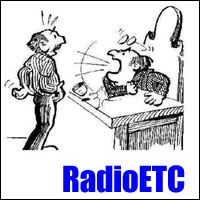
 David A.Thayneさんの『その英語、ネイティブにはこう聞こえます』からこんな例文をピックアップしました。「こちらは私の上司です。」 ”This is my boss”この本によると、ネイティブの間では、特に本人を前にしてこのような言い方はしないとのこと。ETCのカーラ先生に確認をしたところ、上司に対するこんな思いがあるかどうかで意味合いが変わってくるとのことです。どんな思いなのでしょうか。
David A.Thayneさんの『その英語、ネイティブにはこう聞こえます』からこんな例文をピックアップしました。「こちらは私の上司です。」 ”This is my boss”この本によると、ネイティブの間では、特に本人を前にしてこのような言い方はしないとのこと。ETCのカーラ先生に確認をしたところ、上司に対するこんな思いがあるかどうかで意味合いが変わってくるとのことです。どんな思いなのでしょうか。
■聞き手 ・青樹洋文
☆番組の中で紹介した書籍
 『その英語、ネイティブにはこう聞こえますSELECT』
『その英語、ネイティブにはこう聞こえますSELECT』
(David A.Thayne、小池信孝 著、主婦の友社 刊)
(※ 出演者が話した言葉をそのままテキストにして掲載しています。)
Yes. Of course you can use “boss”. OK. But maybe it’s you are very close relationship with your boss. And you like your boss. You are proud of that he is the boss, because he is a very good boss. And thanks to him, many things are going working well including you are learning a lot from him. So also it depends on who are you introducing to. But if the word is exactly as the situation of business, you will rather say, “this is my supervisor”, this is something related from words.
So I mean, that’s why I really emphasized, when you write for the students, that don’t be too narrow about the sentence. Again think which is the situation you are.
Q: What do you mean narrow?
Narrow? Narrow minded.OK? Because I think one of the usual mistakes or difficulties for, not only Japanese but for English learners or any language is that we tend to memorize as we think we always use it. That’s fine when you studied language at the beginning, you need to look at your books, you need to study the right grammar, right way to say as a language. But later, when you are going into the conversation, into the real world, you need to listen and to look more and to see how people using the language in the different situation or read. Then is when you can actually master.
Because if you just say, OK, this is a great book and I like it very much. And It’s a good book to think about your mistakes in this kind of the situations, that is why there is explanation in here in Japanese. But this book doesn’t tell you that you can not use that. Right? So then when you go and you use it, don’t always use as the book says, because then again you will make the same mistake.
◆使用楽曲 (BGM)
“A nice world” of Electric grocery from DOGMAZIC
英語で「お仕事は何をしていますか?」と聞かれたら?
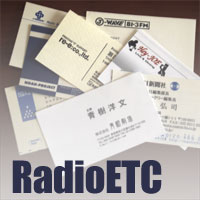
 「お仕事は何をしていますか?」と聞かれて「会社員です」と答えたことはありませんか。英語に直訳すると”I am an office worker” でもネイティブスピーカーの間ではこんな受け答えはしないそうです。日本人が「サラリーマンです」とか「OLです」というような説明だけで、なんとなくコミュニケーションが成立してしまう理由は、日本の名刺文化が関係しているのではないかと、ETCのカーラ先生は考えているそうです。
「お仕事は何をしていますか?」と聞かれて「会社員です」と答えたことはありませんか。英語に直訳すると”I am an office worker” でもネイティブスピーカーの間ではこんな受け答えはしないそうです。日本人が「サラリーマンです」とか「OLです」というような説明だけで、なんとなくコミュニケーションが成立してしまう理由は、日本の名刺文化が関係しているのではないかと、ETCのカーラ先生は考えているそうです。
■出演 ・カーラ先生(ETCマンツーマン英会話)
■聞き手 ・青樹洋文
☆番組の中で紹介した書籍
 『その英語、ネイティブにはこう聞こえますSELECT』
『その英語、ネイティブにはこう聞こえますSELECT』
(David A.Thayne、小池信孝 著、主婦の友社 刊)
(※ 出演者が話した言葉をそのままテキストにして掲載しています。)
Why not? I mean because normally in Japan everybody has a name card to give it right way. So actually your title or what you are doing is quite important in Japan. At least, in a paper, or at least in a name card. I don’t know. I’m wondering, when you are speaking why people don’t want to say something more or why people don’t want to listen to hear what you are exactly doing. Is that also unpoliteness to ask too much? Or is unpoliteness too, how you call, aggressive. Not aggressive, but like showing what you are doing?
Q: Maybe we have very typical image of 会社員、or OL. Just saying that, then I have quite good …
Yeah But an office worker is not same as if you are manager. So my question is if you are the manager, would you just say, “I am the manager”? Or would you just say “I am an office worker”.
Q: If we say the position of the company, it sounds like he is proud of his position. 私は部長です。
But even BUCHO will say, “I am an office worker”?
Q Again this is an expression of modesty.
I see. It’ is very hard to understand psychology behind.
Q Then after giving their name card, then people will notice he is quite good position in that company.
I think it’s interesting culture thing. Because in a way, it’s true if you say I am the president, even in another country, it can sound a little bit too much of an ego person, personality, or to proud.
But it’s true that maybe it’s a good way in Japan to just say I am a worker, I am an office worker, that’s why, I am wondering, the MEISHI, the name card are so important in this country. I mean everybody knows that Japan is No1 for the name card.
Q: You feel like that
Yes, I do. I think it’s not a critic or it’s just a fact, it’s a reality. So maybe it comes from their idea that you can not say what you are correctly, when you meet people. So in order of that you give the name card. Maybe.
But in this case, in English, If you say office worker is too vague. It’s too open. Office worker can be the person who works in a factory, to person who works in a company. So it’s too wide range. That is why you got to make more details what are you doing. Again it’s not about showing, or proudness. It’s about explanation. Maybe later people will ask, “do you have a name card?” “Can I have a name card?”
◆使用楽曲 (BGM)
“A nice world” of Electric grocery from DOGMAZIC
「後ほどお返事いたします」は英語で?
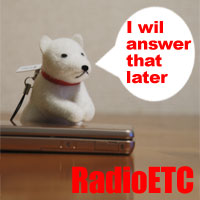

David A.Thayneさんの『その英語、ネイティブにはこう聞こえます』からこんな例文をピックアップ。「後ほどお返事いたします。」これを”I will answer that later”と訳してしまうと、とくにビジネスで使うにはぶっきらぼうになってしまうそうです。お勧めの表現は”Would you mind if I answer that later”
でも、カーラ先生(ETCマンツーマン英会話)からは、さらにこんなアドバイスがありました。
■聞き手 ・青樹洋文
☆番組の中で紹介した書籍
 『その英語、ネイティブにはこう聞こえますSELECT』
『その英語、ネイティブにはこう聞こえますSELECT』
(David A.Thayne、小池信孝 著、主婦の友社 刊)
(※ 出演者が話した言葉をそのままテキストにして掲載しています。)
“I will answer that later”. Of course, again it really depends on how you say this thing on your intonation, on your expression. If you say “I answer you later” and you are smiling. And you are in a voice, it is very sweet or very kind and you say, “I am sorry. I can’t do it right now, because I am very busy and I have to go. But I will answer you later” And you look at the person’s face, and you have eye contact, and you smile, the person will not feel disappointed, will understand.
OK. But if you say, hardly look at the person, other things you are doing, “I’ll answer you later”, the opposite person reaction will fill like a little bit coldness. Or you hardly care about some advice or I am asking you for something since you are very busy and more important things to do.
So Sometimes in order not to make that person’s feeling that way, you’d better to say “would mind if answer that later.” And Even if you say it in a very fast way, and not looking at the person, the words speak by themselves to. You understand? So you would say “would mind if answer you later”, that means not I don’t care, you just, I’ve got hurry, I got to go, something like that.
◆使用楽曲 (BGM) “A nice world” of Electric grocery from DOGMAZIC
「恐れ入りますが」は英語で?
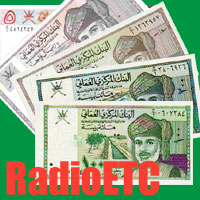
 日本語のような敬語、謙譲語の言い回しは、英語には無いという話を聞くことがあります。本当にそうでしょうか?
日本語のような敬語、謙譲語の言い回しは、英語には無いという話を聞くことがあります。本当にそうでしょうか?
■出演 ・カーラ先生(ETCマンツーマン英会話)
■聞き手 ・青樹洋文
☆番組の中で紹介した書籍
 『その英語、ネイティブにはこう聞こえますSELECT』
『その英語、ネイティブにはこう聞こえますSELECT』
(David A.Thayne、小池信孝 著、主婦の友社 刊)
(※ 出演者が話した言葉をそのままテキストにして掲載しています。)
Well actually it is very useful like you say. For example, if a friend of yours ask you for some help or some advice or for something. It doesn’t have to be touchable. It can be an advice or some help with some mater or trouble. But it also can be like if a friend ask you for money to lend, to borrow. So you could always say I am afraid I can’t help you. I am afraid I won’t be able to do it this time. I am afraid I don’t have any money myself now.
So that’s also another way to, you know, basically when you say I am afraid, you say it from the heart. It’s not only about being polite or being correct or being nice. It’s very sincere.
It’s like you wish you could be able to help you or help this situation or to do something about it, it doesn’t have to be extremely hard situation, you can be just a very tiny thing like, for example, a shop is closed because it’s time to close. So this is not their fault. But they wish they could help.
Q So we can feel sincerity.
Sincerity, honesty. The person good will in this situation.
☆ ☆ ☆
Well, that’s also of course. The word “afraid” is to be scare of something, be apprehensive. Apprehensive is that you are not very comfortable in that kind of situation. The word, afraid, can have many levels. You can be very scared about something, but you also can’t just help it, if you can do it like you wish. Basically if you say I am afraid of water, it’s not that you hate for water. OK. You could go into the sea and you would love to. You wish you could go into the water. But you are afraid that you can’t do it. It’s above your good feeling, maybe in your past childhood, you had some problem with the sea water.
◆使用楽曲 (BGM)
“A nice world” of Electric grocery from DOGMAZIC
“Could I borrow” と “May I borrow” の違い
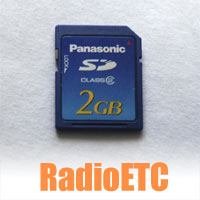
“Could I borrow” と “May I borrow” の違い
 David A.Thayneさんの『その英語、ネイティブにはこう聞こえます』からこんな例文をピックアップ。「メモリーカードを貸してください」 もし”Do you have a memory card”と言ってしまうとややカジュアルすぎ。”Could I borrow a memory card from you?”がお勧めの表現とのこと。では、May I borrow…はどうでしょうか?ETCのカーラ先生に質問してみました。
David A.Thayneさんの『その英語、ネイティブにはこう聞こえます』からこんな例文をピックアップ。「メモリーカードを貸してください」 もし”Do you have a memory card”と言ってしまうとややカジュアルすぎ。”Could I borrow a memory card from you?”がお勧めの表現とのこと。では、May I borrow…はどうでしょうか?ETCのカーラ先生に質問してみました。
■聞き手 ・青樹洋文
☆番組の中で紹介した書籍
 『その英語、ネイティブにはこう聞こえますSELECT』
『その英語、ネイティブにはこう聞こえますSELECT』
(David A.Thayne、小池信孝 著、主婦の友社 刊)
(※ 出演者が話した言葉をそのままテキストにして掲載しています。)
It’s too much, I think. May I, you got be a little bit careful when you use that. It can be too much. You could. Of course it’s not bad to use that. But I think it’ll be a little bit funny. Too polite, strange.
Q: When do we use “May I”?
Again, I mean, it’s many different levels of that. But “may” is very polite. Also sometimes categorized people by different, like high stage or old person and so.
Q: Asking one’s name, “may I have your name” or “could I have your name”?
Could I have your name? Again it’s a range of politeness. But some times you can sounds very nice if you say “may I have your name”. If you are an immigration office, officer is very nice to say “may I have your name”. But maybe the officers feel like it’s more bit official person towards you, will say “so could I have a name”. That’s all.
◆使用楽曲 (BGM)
“A nice world” of Electric grocery from DOGMAZIC
ClimateSmartな梱包
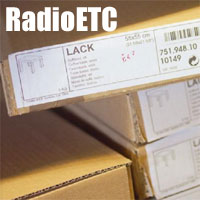
 090327.mp3
090327.mp3
(4分00秒)
スウェーデンの大手家具屋のIKEAでは、梱包箱にもClimateSmartな工夫をしているそうです。どんな工夫なのでしょうか?
■出演
・ペオ・エクベリ(Peo Ekberg)
環境コンサルタント、OneWorld Network代表、One Planet Cafeアドバイザー
■聞き手
・青樹洋文
ClimateSmartなコミュニケーション

 090326.mp3
090326.mp3
(3分25秒)
Stop温暖化!とても分かりやすい標語で、危機感さえ感じます。その一方で、創造力をかきたてられる表現ではないなとも感じていました。Peoさんからこんな提案がありました。
■出演
・ペオ・エクベリ(Peo Ekberg)
環境コンサルタント、OneWorld Network代表、One Planet Cafeアドバイザー
■聞き手
・青樹洋文
ClimateSmartな燃料

 090325.mp3
090325.mp3
(2分21秒)
スウェーデンにはClimateSmartと書かれたバスが走っているそうです。いったいどんなバスなのでしょうか?
■出演
・ペオ・エクベリ(Peo Ekberg)
環境コンサルタント、OneWorld Network代表、One Planet Cafeアドバイザー
■聞き手
・青樹洋文
ClimateSmartな照明
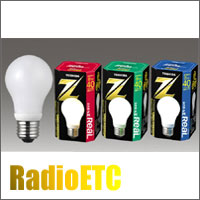
 090324.mp3
090324.mp3
(4分13秒)
省エネ電球といわれている白熱電球の形をした蛍光灯。でもその販売価格は7倍近く。そこでClimateSmartな人はどんな計算をするのでしょうか?
■出演
・ペオ・エクベリ(Peo Ekberg)
環境コンサルタント、OneWorld Network代表、One Planet Cafeアドバイザー
■聞き手
・青樹洋文
Are you ClimateSmart?

 090323.mp3
090323.mp3
(4分02秒)
スウェーデンでは「ストップ!温暖化」と言うかわりに、「Climate Smart」という言葉が使われるそうです。直訳すると「気候かしこい」 どんな意味なのでしょうか?
■出演
・ペオ・エクベリ(Peo Ekberg)
環境コンサルタント、OneWorld Network代表、One Planet Cafeアドバイザー
■聞き手
・青樹洋文
レストランでの英語
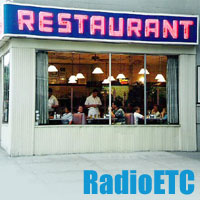
 レストランでメニューを指差して「これを下さい」と言うとき、英語ではなんと言いいますか?
レストランでメニューを指差して「これを下さい」と言うとき、英語ではなんと言いいますか?
■出演 ・カーラ先生(ETCマンツーマン英会話)
■聞き手 ・青樹洋文
☆番組の中で紹介した書籍
 『その英語、ネイティブにはこう聞こえますSELECT』
『その英語、ネイティブにはこう聞こえますSELECT』
(David A.Thayne、小池信孝 著、主婦の友社 刊)
(※ 出演者が話した言葉をそのままテキストにして掲載しています。)
“ I want this.” Yes, that’s too strong. Like a kid. “I’d like this.” It’s much better “I’d like this, please” or ”Can I have this, please” or something. But if you say “I want this”, it like a kid or わがまま selfish person, “I want this”.
Q: Then again maybe listening how native speakers order the foods.
Yes, exactly. You know, you get to listen, listen a lot, then you think about it and OK you just do the same thing. It’s a good book, because then you understand your own mistakes. So it makes you think.
Q: But I am afraid that I am not sure I can correct my English.
Well, it will take your time! But you know if you look at the book, and you think about it, maybe next time you gonna be in that situation, you gonna remember. And you think about it. May the word doesn’t come right way, you made mistake again, but I think it will make you think.
“May I have a cup of coffee?” は間違い?
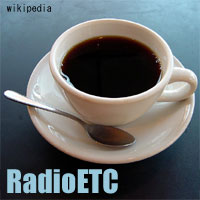
“May I have a cup of coffee?” は間違い?
 『その英語、ネイティブにはこう聞こえます』(David A.Thayne、小池信孝 著、主婦の友社 刊)によると、飛行機の中でキャビンアテンダントに「コーヒーを下さい」というとき、May I have a cup of coffee? というと、特にa cup of coffeeはマグカップに入ったコーヒーを思い浮かべてしまうため、特にエコノミークラスなどでは不自然になってしまうそうです。
『その英語、ネイティブにはこう聞こえます』(David A.Thayne、小池信孝 著、主婦の友社 刊)によると、飛行機の中でキャビンアテンダントに「コーヒーを下さい」というとき、May I have a cup of coffee? というと、特にa cup of coffeeはマグカップに入ったコーヒーを思い浮かべてしまうため、特にエコノミークラスなどでは不自然になってしまうそうです。
■出演 ・カーラ先生(ETCマンツーマン英会話)
■聞き手 ・青樹洋文
☆番組の中で紹介した書籍
 『その英語、ネイティブにはこう聞こえますSELECT』
『その英語、ネイティブにはこう聞こえますSELECT』
(David A.Thayne、小池信孝 著、主婦の友社 刊)
(※ 出演者が話した言葉をそのままテキストにして掲載しています。)
Yeah, I mean nothing wrong with that. But again the things you learned and then you will practice is different. Things change it depends on the situation depends on whom you are talking to. So you can not always exactly talk as you learned. Then you make this kind of mistakes, which are not like huge mistakes. People will understand you. But you will not sound as native speaker or as colloquial. As colloquial is like friendly talking. Colloquial means like a friendly way, casual way.It too much sounds like if you are coming from schooler talking.
Q: So what do you say in a flight to ask coffee?
Can I have coffee please, or I’ll take coffee. Also it is too polite, you know, “May I have a cup of coffee?”
Q: So, also you have to be careful not to be too polite.
Yeah, sometimes too polite also it bit a like you make the distance or it sounds too funny. You can say, you know, “Coffee please.”
need to と must の使い分け
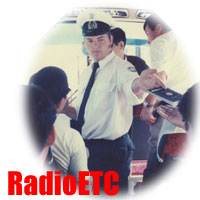
 『その英語、ネイティブにはこう聞こえます』(David A.Thayne、小池信孝 著、主婦の友社 刊)によると、「どこで乗り換えればいいのでしょう」と英語で聞くときに、Where must I chage trains?と言うと、mustは義務が生じるときに使われるため大げさな表現になってしまうそうです。
『その英語、ネイティブにはこう聞こえます』(David A.Thayne、小池信孝 著、主婦の友社 刊)によると、「どこで乗り換えればいいのでしょう」と英語で聞くときに、Where must I chage trains?と言うと、mustは義務が生じるときに使われるため大げさな表現になってしまうそうです。
■出演 ・カーラ先生(ETCマンツーマン英会話)
■聞き手 ・青樹洋文
☆番組の中で紹介した書籍
 『その英語、ネイティブにはこう聞こえますSELECT』
『その英語、ネイティブにはこう聞こえますSELECT』
(David A.Thayne、小池信孝 著、主婦の友社 刊)
(※ 出演者が話した言葉をそのままテキストにして掲載しています。)
Must. Yeah, must is a little bit strong. Slightly. Again If depends on situation. It depends on who are you talking to. So you can not always say 100% or you have to use must .You can not follow always the grammatical rules exactly they are. Because then maybe you are going to the different situation and if you actually wanna to be stronger about your point, you can say it, must.
Depends on the situation, depends on the feeling, depends on how do you wanna transmit your message to the people, you are talking to.
Then you need to listen to a lot to see how other people speak, native speakers to, hear very carefully, and then you know, to speak also a little more relax about it. Don’t think too much about the English grammar, about the correct way, It’s very good thing to do. Watching movies and different people, different accents, different situations, or when you travel.
ネイティブは”How are you?”とは言わない?
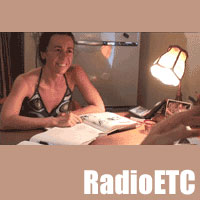
 こんにちは、調子はどうですか?おそらく英語の授業で最初に習う表現ではないでしょうか。でも、『その英語、ネイティブにはこう聞こえます』(David A.Thayne、小池信孝 著、主婦の友社 刊)によると、これはネイティブ・スピーカーの間ではあまり使われない表現とのこと。本当にそうなのでしょうか。ETCのカーラ先生に聞いてみました。
こんにちは、調子はどうですか?おそらく英語の授業で最初に習う表現ではないでしょうか。でも、『その英語、ネイティブにはこう聞こえます』(David A.Thayne、小池信孝 著、主婦の友社 刊)によると、これはネイティブ・スピーカーの間ではあまり使われない表現とのこと。本当にそうなのでしょうか。ETCのカーラ先生に聞いてみました。
■出演 ・カーラ先生(ETCマンツーマン英会話)
■聞き手 ・青樹洋文
◆番組の感想はメールフォームから。
☆番組の中で紹介した書籍
 『その英語、ネイティブにはこう聞こえますSELECT』
『その英語、ネイティブにはこう聞こえますSELECT』
(David A.Thayne、小池信孝 著、主婦の友社 刊)
(※ 出演者が話した言葉をそのままテキストにして掲載しています。)
Yes, it is a little bit old fashion. “Hi, how are you doing?” is more nowadays, casual also, friendly.
Q: native speakers don’t say, “How are you?”
No, not necessary. If you know each other, no. Specially you sound more friendly If you say “How are you doing?”
– – – – –
Well I mean the solution is just practice really. Practice! Practice! Practice! Hear! Hear! Hear! You know, listen, hearing, practice. You don’t have to sound exactly as native speaker. But if you hear the way they talk or the way you say the things, you just do the same. And it will be the one day, you don’t think about it. You don’t even notice that you are actually talking correctly or right way.
But don’t focus too much on the right way. I mean there are many kinds of situations, many kinds of types of people you are talking to. So you gotta be careful because maybe you think “OK, I always have to say this, I have to say this”. You have to be flexible.
OK.? Now you know that some of the ways you have answered is not correct. It’s not totally wrong but it’s not correct. So then you understand and then you change it. But another situation you can still use that. So you got to be careful about that. Be flexible. So you just have to say OK I have to be a little bit careful if I am using it all the time this. Maybe I am talking in a different atmosphere with the business or with the friends. Then I will sound also funny. Because you too much of copying as it is.
時刻を聞くときに”What time is it now?”とは言わない?
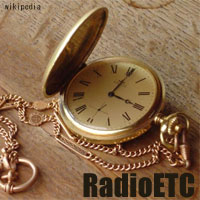
時刻を聞くときに”What time is it now?”とは言わない?
 英語の教科書で学んだ通りに話したのに、ネイティブ・スピーカーには上手く通じなかった、という経験はありませんか。その原因を気づかせてくれる興味深い本に出会いました。
英語の教科書で学んだ通りに話したのに、ネイティブ・スピーカーには上手く通じなかった、という経験はありませんか。その原因を気づかせてくれる興味深い本に出会いました。
『その英語、ネイティブにはこう聞こえます』
教科書に載っている表現も、話す相手やその状況によって、ネイティブには不自然に聞こえてしまうことがあるようです。
■出演 ・カーラ先生(ETCマンツーマン英会話)
■聞き手 ・青樹洋文
◆番組の感想はメールフォームから。
☆番組の中で紹介した書籍
 『その英語、ネイティブにはこう聞こえますSELECT』
『その英語、ネイティブにはこう聞こえますSELECT』
(David A.Thayne、小池信孝 著、主婦の友社 刊)
(※ 出演者が話した言葉をそのままテキストにして掲載しています。)
Yeah, it’s better to say “do you have the time?” I think so.
Q. If I say “what time is it now?” how does it sound like?
“What time is it now? “ It doesn’t sound bad. I think none of these ones in general are bad mistake. But it just doesn’t sound native speaker. So, you know, it more like you are just そのまま translating form English or form the Japanese to the English.
No. If you say “do you have time?” then it has such meaning.
Q: Which one?
Do you have time? Without “the”. So “do you have time now?” Maybe this is like “Are you free?” All right? But if you say “do you have the time?” it’s different. It’s “the”. If you say “do you have the time?” meaning, “what time is it now? ”, but if you say “do you have time?” meaning maybe “Can you help me with something I need to ask you?” or “Can we talk about something?”.
Article. Yes, it’s very important not to forget about that. You could say also “Do you have time to help me to do this and this”. But it’s a different thing.
But otherwise if you say “Do you have the time? ”, then the answer will be “Well It is now 7 o’clock.” or ”It is 12 o’clock”.
オーガニックコーヒーを飲む理由
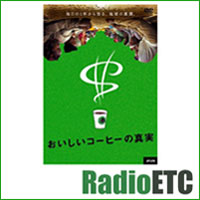
 090223.mp3
090223.mp3
(6分28秒)
現在年間4万人の方が農薬のためになくなっているそうです。OnePlanetCafe Zambiaの次のプランは食べることをとおして学ぶランチビュッフェだそうです。
■出演
・ペオ・エクベリ(Peo Ekberg)
環境コンサルタント、OneWorld Network代表、One Planet Cafeアドバイザー
※中古パソコンをザンビアに提供していただける方はこちらからメールを送ってください。
ワンプラネットカフェ連絡先
■聞き手
・青樹洋文
◆ザンビアの皆さんが出演するインタビュー動画をごらんいただけます。
アフリカの英語に触れる~Speaking English Around The World.
ザンビアのコンピュータコースが人気の理由
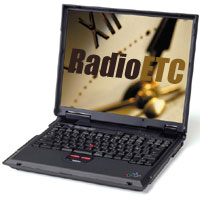
 090222.mp3
090222.mp3
(3分31秒)
OnePlanetCafeのコンピューターコースが大人気なのはこんなところに理由があったようです。
■出演
・ペオ・エクベリ(Peo Ekberg)
環境コンサルタント、OneWorld Network代表、One Planet Cafeアドバイザー
※中古パソコンをザンビアに提供していただける方はこちらからメールを送ってください。
ワンプラネットカフェ連絡先
■聞き手
・青樹洋文
◆ザンビアの皆さんが出演するインタビュー動画をごらんいただけます。
アフリカの英語に触れる~Speaking English Around The World.
あなたが歩いた後に道ができる
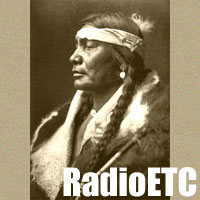 090221.mp3
090221.mp3
(6分24秒)
ペオさんと奥様の聡子さんがザンビアの人たちと共に始めたコンピューターコース。最初のはその効果を計り知ることができいませんでした。でも、行動を続ける中で見えてきたのはネイティブ・アメリカンのこの言葉でした。There is no road, but if you start to walk, there is one.
■出演
・ペオ・エクベリ(Peo Ekberg)
環境コンサルタント、OneWorld Network代表、One Planet Cafeアドバイザー
※中古パソコンをザンビアに提供していただける方はこちらからメールを送ってください。
ワンプラネットカフェ連絡先
■聞き手
・青樹洋文
◆ザンビアの皆さんが出演するインタビュー動画をごらんいただけます。
アフリカの英語に触れる~Speaking English Around The World.
秋葉原の中古コンピュータが変えたメアリーさんの人生
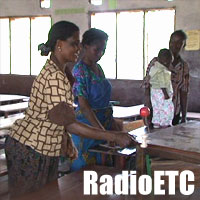
 090220.mp3
090220.mp3
(5分28秒)
生れたばかりの赤ちゃんを背負ってOnePlanetCafeのコンピューターコースを受講したメアリーさん。講習の後、メアリーさんはどうなったのでしょう。
■出演
・ペオ・エクベリ(Peo Ekberg)
環境コンサルタント、OneWorld Network代表、One Planet Cafeアドバイザー
※中古パソコンをザンビアに提供していただける方はこちらからメールを送ってください。
ワンプラネットカフェ連絡先
■聞き手
・青樹洋文
◆ザンビアの皆さんが出演するインタビュー動画をごらんいただけます。
アフリカの英語に触れる~Speaking English Around The World.
大人気。ザンビアのコンピュータ・ラーニング・コース
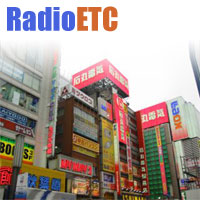
 090218.mp3
090218.mp3
(6分49秒)
ペオさんと奥様の聡子さんがザンビアで始めたOne Planet Cafe。ここは大人たちの学び場です。昨年から始めたコンピューターコースにはなんと22名の方が予約待ちとのこと。そこで、ペオさんからこんなお願いがありました。
■出演
・ペオ・エクベリ(Peo Ekberg)
環境コンサルタント、OneWorld Network代表、One Planet Cafeアドバイザー
※中古パソコンをザンビアに提供していただける方はこちらからメールを送ってください。
ワンプラネットカフェ連絡先
■聞き手
・青樹洋文
◆ザンビアの皆さんが出演するインタビュー動画をごらんいただけます。
アフリカの英語に触れる~Speaking English Around The World.
あなたのポケットの中にもザンビアの資源が

 090217.mp3
090217.mp3
(2分45秒)
ザンビアと日本人の繋がり。実はこんな身近なところにありました。
■出演
・ペオ・エクベリ(Peo Ekberg)
環境コンサルタント、OneWorld Network代表、One Planet Cafeアドバイザー
■聞き手
・青樹洋文
◆ザンビアの皆さんが出演するインタビュー動画をごらんいただけます。
アフリカの英語に触れる~Speaking English Around The World.
世界の人口の13%はアフリカ人
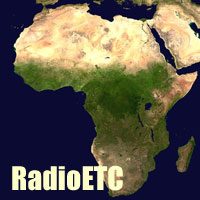
 090216.mp3
090216.mp3
(3分52秒)
とても興味があっても、何故か分かりづらいと感じてしまうアフリカの国々。ペオさんがこんな話しをしてくれました。
■出演
・ペオ・エクベリ(Peo Ekberg)
環境コンサルタント、OneWorld Network代表、One Planet Cafeアドバイザー
■聞き手
・青樹洋文
◆ザンビアの皆さんが出演するインタビュー動画をごらんいただけます。
アフリカの英語に触れる~Speaking English Around The World.
お友達紹介キャンペーン
ETC現会員及び休会中の会員の皆様へ
会員様におかれましては日頃よりETCでレッスンをお取りいただきありがとうございます。
ETCでは会員の皆様の負担を少しでも軽くするため御入会者をご紹介くださった会員様に入会者お一人につき五千円の謝礼金を贈らせていただいております。ご友人が直接ご入会お申し込みの際にはぜひご紹介の会員様のお名前をお伝えくださるようご協力をお願い申し上げます。
休会中で現在レッスンをなさっていない方からのご紹介の場合にももちろん贈らせていただいております。確実に謝礼金を贈らせていただくために、ご住所、お電話番号、メールアドレスなどご連絡先変更の方は是非この機会に下記事務局あて登録情報の更新をお願いいたします。
是非このお得な機会にお友達にETC英会話をご紹介くださいますようお願い申しあげます。
ETC事務局
代表 福本哲也
tel 03-3924-3853
2009-02-14 11:50:25
“今年もよろしく”は英語で?
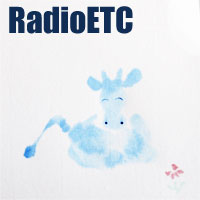
 あまりにも便利な言い回しのため、ついつい使ってしまう新年の挨拶。「ことしもよろしくお願いします」。さて、これは英語では何と言ったらいいのでしょう。カーラ先生(ETCマンツーマン英会話)に聞いてみました。
あまりにも便利な言い回しのため、ついつい使ってしまう新年の挨拶。「ことしもよろしくお願いします」。さて、これは英語では何と言ったらいいのでしょう。カーラ先生(ETCマンツーマン英会話)に聞いてみました。
But we don’t say that in English. 今年もよろしく。 We say more like “a happy New Year!” “ I wish you all the best” “I wish you all the best for this New Year”. But we don’t say ことしもよろしく。
Q: It is talking about you. But ことしもよろしく is talking about me and you together.
We say more “we wish you good things for the new year”, or “we wish you a happiness or love, joy and …” not ことしもよろしく
Get along well together? If you need to translate it, you can say “this year let’s get along together”, but you don‘t really say. It sounds very strange. Yes. I would say that you only say “a happy New Year!” “I wish you all the best” “I hope your dreams come true”. So you are wishing good things to the other person. Because sometimes, Japanese take it seriously, “OK, this is a way to say.” I don’t think that there is one correct answer. You can change it a round depending on the situation.
Q: Sometimes we try to find one very good…
Yes, have an exactly correct. If you say that to people, then they might be more confuse. Depending on the situation, depending on who you are with, you can change it around , change your words.
“がんばります”は英語で?
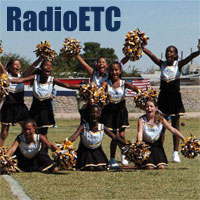
 「がんばります」は英語で何といったらいいのでしょうか。I will Try My best. I do as much as I can. でも、「がんばります」には、これらの英訳よりも強い意味を感じませんか?カーラ先生(ETCマンツーマン英会話)はこんなふうに思っているそうです。
「がんばります」は英語で何といったらいいのでしょうか。I will Try My best. I do as much as I can. でも、「がんばります」には、これらの英訳よりも強い意味を感じませんか?カーラ先生(ETCマンツーマン英会話)はこんなふうに思っているそうです。
■出演 ・カーラ先生(ETCマンツーマン英会話)
■聞き手 ・青樹洋文
Q: がんばってください
It will be like a “try your best!”, “do you best!”.
Q: がんばります
“I’ll try my best”, “I will do my best”, “ do as much as you can!”. I mean がんばれ is very Japanese also. Try you best! Do your best! That’s suffering. They love suffer really, Sacrifice a little bit for the country. がんばりますとかA little bit serious. I am going to sacrifice. I am going to try my best.
Q: In some cases, they don’t look happy.
I think in the west, it sounds a little bit more happy, more cheerful, maybe. “I try my best. OK, sure, I keep my score.” がんばります is a little bit like suffering. Yes, you know, very hard. I think. My feeling. I don’t know.
Q: So we say がんばりすぎるな
Yes, yes. Don’t do too much.
エコロジーはエコノミー

 090119.mp3
090119.mp3
(3分36秒)
Peoさんが「持続可能」という言葉を使うとき、それは地球環境のことだけをさしているのではなく、経済的にも持続可能であるという意味も含んでいるということを知ったとき、とても興味をもちました。
■出演
・ペオ・エクベリ(Peo Ekberg)
環境コンサルタント、OneWorld Network代表、One Planet Cafeアドバイザー
☆ペオさんが奥様と二人で年間24万円の節約を達成したエコ・ライフの詳細
(クリックすると拡大画像が見られます。)
事務局のメールアドレスは復旧いたしました。
1月19日朝9:30より障害の出ていましたETC事務局のメール(biglobe)は午後2時頃復旧いたしました。Biglobe側からは原因についての返事がありませんので詳細は不明ですが現在問題なく送受信できます。ご迷惑をおかけして申し訳ありませんでした。
2009-01-19 13:56:40
エコ口座を開設しよう!
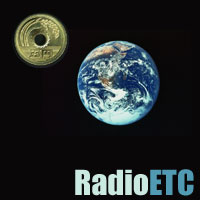
 090117.mp3
090117.mp3
(5分02秒)
地球環境に正しいライフスタイルを送っていると、お金が節約できることが分かってきました。では、そのお金をエコ口座に貯金してみてはいかがでしょうか?
■出演
・ペオ・エクベリ(Peo Ekberg)
環境コンサルタント、OneWorld Network代表、One Planet Cafeアドバイザー
☆ペオさんが奥様と二人で年間24万円の節約を達成したエコ・ライフの詳細
(クリックすると拡大画像が見られます。)
■聞き手
・青樹洋文
石鹸シャンプーが買えるお店 LUSH
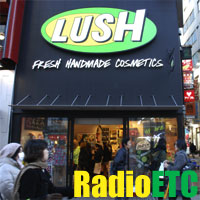
 090115.mp3
090115.mp3
(4分03秒)
固形の石鹸シャンプーはどこで買えるのでしょうか?PeoさんがLUSHというお店を紹介してくれました。
■出演
・ペオ・エクベリ(Peo Ekberg)
環境コンサルタント、OneWorld Network代表、One Planet Cafeアドバイザー
☆Lushのホームページ
http://www.lush.com/
☆ペオさんが奥様と二人で年間24万円の節約を達成したエコ・ライフの詳細
(クリックすると拡大画像が見られます。)
Shampoo Bar – 固形石鹸シャンプーの勧め
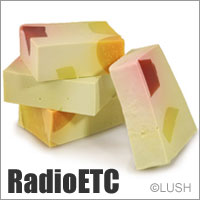
 090113.mp3
090113.mp3
(6分35秒)
かつてスウェーデンに住んでいた弟が日本に帰ってきたときにこんなことを言っていました。「日本で買物をすると商品といっしょに沢山のゴミがついてくる」 レジ袋、包装紙、プラスティックボトル、ビニールのラッピング、新商品キャンペーンお知らせのチラシ。今日はペオさんから固形石鹸シャンプーのお話しです。
■出演
・ペオ・エクベリ(Peo Ekberg)
環境コンサルタント、OneWorld Network代表、One Planet Cafeアドバイザー
☆ペオさんが奥様と二人で年間24万円の節約を達成したエコ・ライフの詳細
(クリックすると拡大画像が見られます。)
■聞き手
・青樹洋文
IKEAの植林プロジェクト
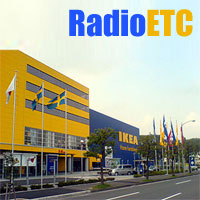
 090109.mp3
090109.mp3
(6分51秒)
スウェーデンの企業のアニュアルレポートを見ると、売上、利益、株価などがいかに成長したかを示す、右肩上がりのグラフと共に、エネルギーの消費量、ゴミの排出量、水の使用量などをいかに環境に負荷をかけない経営を実現したかを示すたくさんの右肩下がりのグラフが掲載されています。今日はスウェーデンの大手家具屋IKEAのお話をお聞きしました。
■出演
・ペオ・エクベリ(Peo Ekberg)
環境コンサルタント、OneWorld Network代表、One Planet Cafeアドバイザー
☆ペオさんが奥様と二人で年間24万円の節約を達成したエコ・ライフの詳細
(クリックすると拡大画像が見られます。)
☆IKEA「Sow a Seed 種まきプロジェクト」
http://www.ikea.com/ms/ja_JP/about_ikea_new/our_responsibility/forestry/sow_a_seed.html
■聞き手
・青樹洋文
エコライフスタイル・エコノミー

 090107.mp3
090107.mp3
(6分51秒)
ペオさんはエコライフのおかげで、年間24万円節約しているそうです。例えば、日本人は年間150本のペットボトル飲料を購入するとのこと。金額にすると2万円以上… ペオさんからこんな提案がありました。
■出演
・ペオ・エクベリ(Peo Ekberg)
環境コンサルタント、OneWorld Network代表、One Planet Cafeアドバイザー
☆ペオさんが奥様と二人で年間24万円の節約を達成したエコ・ライフの詳細
(クリックすると拡大画像が見られます。)
■聞き手
・青樹洋文
フランス人の話す英語

フランス人の話す英語 (1分50秒)

映画「レミーのおいしいレストラン」の舞台はパリ。ダイアン先生(ETCマンツーマン英会話)によると登場人物の何人かはフランス語なまりの英語を話しているそうです。それははどのようなものなのでしょうか?
■出演
・ダイアン先生(ETCマンツーマン英会話)
■聞き手
・青樹洋文
◆関連リンク
レミーのおいしいレストラン
Q: Actually, they are all French, right?
Yes, yes. It takes the place in Paris, so they are speaking English, but they have a French accent.
Q; Could explain what is the French accent?
Well, one of them was at the next question, yeah, harsh. They don’t pronounce h. So, hum, Mr, what is his name, the chief chef, he was saying arsh instead of harsh. Or, there was another one. Yeah. Dangerous. Dangerous.
Q: So it’s very close to French.
Yes, yes. The way of pronouncing.
Q: Oh, it’s very interesting. So they can’t pronounce H sound, right?
Hum, many of the words are not, H is not pronounced in French. So many people who speak English with the French accent sometimes skip H, so then it becomes not hungry but ungry. So you don’t know if you are angry, or if you are hungry.
◆使用楽曲 (BGM)
“Soft” of TON from jamendo
「チベットチベット」パンフレットプレゼント〆切延長2/8迄
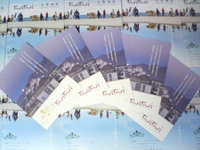
つきましては、ポッドキャスティングRadioETCの番組の感想をお送りくださった方の中から抽選で5名の方に、同パンフレットをプレゼントいたします。締め切りは2月8日まで。感想は番組の感想の送信フォームのからお送りください。
なお新年1月31日(土)18:00の上映会は「チベットを知る夕べ」と題され、東京高輪の正満寺にて行われますが上映後には打楽器・揚琴奏者、長屋和哉さんのミニライブがあります。
チケットのお求めはチケットぴあにて 受付電話 0570-02-9999 Pコード[554-746]
お問い合わせは主催者(株)KOKIHIさんへ 03-5848-4430
2008-12-29 16:18:55
徳は孤ならず、必ず隣有り~ETC創業者福本光一郎インタビュー(7)
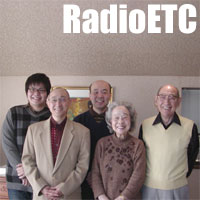
徳は孤ならず、必ず隣有り~ETC創業者福本光一郎インタビュー(7)
 光一郎さんは昭和30年にスーパー江戸屋を開業。その五年後に本業の江戸屋は若手に任せ、トレーディングスタンプを取扱う会社に参画します。しかし42年、スーパー江戸屋は廃業となります。
光一郎さんは昭和30年にスーパー江戸屋を開業。その五年後に本業の江戸屋は若手に任せ、トレーディングスタンプを取扱う会社に参画します。しかし42年、スーパー江戸屋は廃業となります。


